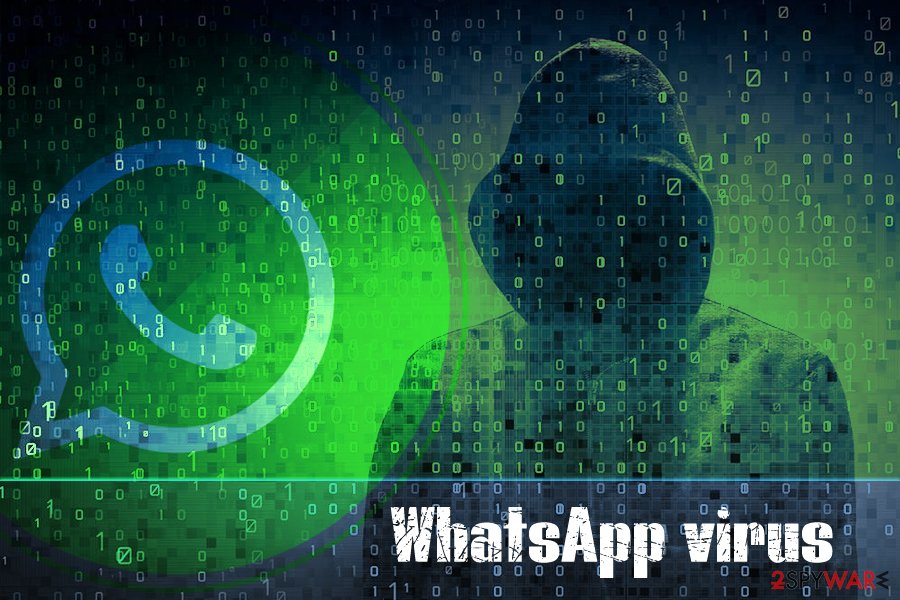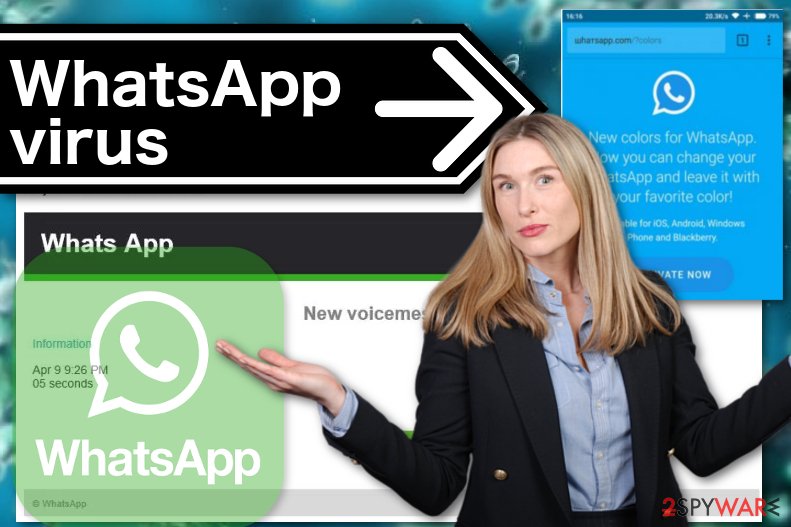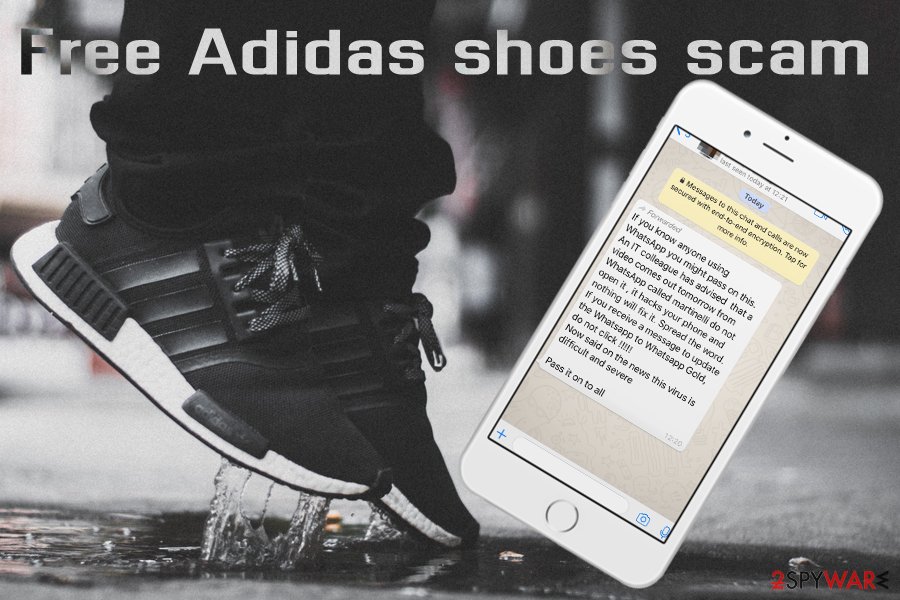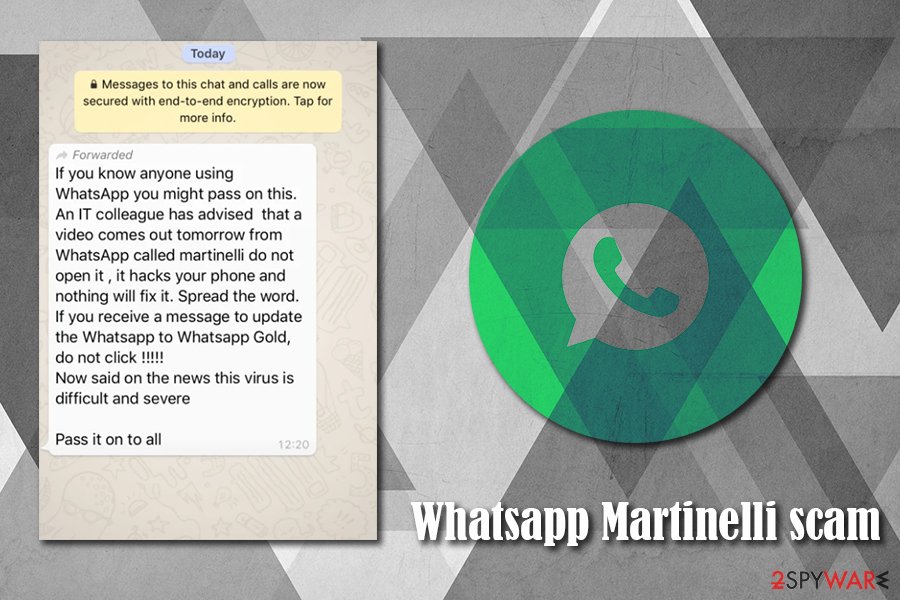Martinelli вирус whatsapp что это
Жульничество с WhatsApp вирусами и аферы

WhatsApp вирус — это тип программного обеспечения, созданный для использования пользователями приложения WhatsApp. Само само оригинальное приложение НЕ является вирусом, но его имя или платформа могут использоваться злонамеренными сторонними лицами для манипулирования ничего не подозревающих жертв на загрузку Trojan или отказа от их конфиденциальной информации.
Как правило, эти программы устанавливаются в качестве дополнительных компонентов на зараженном устройстве; поэтому недостаточно просто удалить WhatsApp с компьютера, чтобы решить проблему.
WhatsApp — популярное приложение для обмена бесплатными сообщениями, совместимое с “iPhone”, “Android”, “BlackBerry”, “Windows” и другими мобильными операционными системами. В настоящее время его пользовательская база данных насчитывает более 1,2 миллиарда пользователей , поэтому неудивительно, что мошенники и создатели вредоносных программ изобретают способы извлечь выгоду из этого.
Изъяны безопасноти в программном коде, не помогают ситуации.
В начале этого года исследователь Калифорнийского университета Тобиас Боалтер обнаружил бэкдор, который позволил несанкционированный и неконтролируемый доступ к приложению. Эта уязвимость позволила расшифровать безопасное сквозное шифрование сообщений, позволяя хакерам читать разговоры жертв .
Конечно, недостаток был быстро исправлен, но могут ли быть какие-то гарантии, что это не повторится в будущем? Даже если WhatsApp справляется с проблемами безопасности, существует множество других способов использования приложения для вредоносных целей.
В этой статье мы представим некоторые из существующих в настоящее время угроз, попытаемся определить, как они попадают на устройства, и, наконец, обсудить варианты удаления WhatsApp вирусов. Если вы являетесь пользователем Android, вы также сможете найти полезную информацию в руководстве по устранению вирусов Android.

WhatsApp вирус приходит в разных образах и размерах. На картинке выше вы можете видеть пару примеров вируса.
Версии WhatsApp вируса:
GhostCtrl — это троян, который может маскироваться как множество различных программ, включая WhatsApp. После установки, поддельное приложение WhatsApp возьмет на себя управление устройством. Затем хакеры могут собирать любую информацию, которую они хотят, будь то журналы вызовов, текстовые сообщения, номера в списке контактов, местоположение GPS телефона или историю просмотра веб-страниц.
Вдобавок ко всему, у GhostCtrl есть возможность включить/отключить микрофон и камеру телефона, это означает, что вас можно просматривать как в онлайн, так и в реальной жизни.
Поддельное приложение выглядит как обычное приложение WhatsApp. Таким образом, его может быть трудно обнаружить. Поэтому, вы всегда должны загружать приложения только из авторитетных источников.
Если вы получили голосовое сообщение от WhatsApp в своей почте, скорее всего, вас атакуют мошенники. Название темы таких спам-писем говорят “Пропущенное голосовое сообщение”, в то время как само письмо содержит сфабрикованную информацию о том, когда сообщение было получено, и ссылку для его воспроизведения.
К сожалению, нажатие кнопки “Воспроизвести” не приведет вас никуда, кроме вредоносного веб-сайта, где преступники попытаются обмануть вас на установку вредоносных программ, таких как Browser 6.5.
Такие программы обычно заражены вымогателем или подобными вирусами, так что вы должны быть максимально осторожны!
Это очередная схема обмана, созданная чтобы обманывать пользователей на загрузку вредоносного ПО, замаскированного как новая функция WhatsApp.
В частности, мошенники распространяли сообщения, призывающие жертв обновлять свои аккаунты до версии премиум-класса WhatsApp Gold. Проблема в том, что такой версии не существует.
Когда пользователи нажимают на ссылку, указанную в сообщении, она немедленно перенаправляет их на вредоносные сайты и подвергает пользователей риску заражения их устройств.

Подобно ранее упомянутой афере, WhatsApp trial service нацелен отправлять жертвам поддельные сообщения, в которых утверждается, что их однолетняя версия WhatsApp истекла, и что пользователь должен подписаться на ее продление.
Чтобы заставить пользователей подключиться к этому фиктивному предложению, мошенники поощряют жертв подключаться к “клиентскому порталу” и подписаться, используя данные для входа в WhatsApp.
Затем жертв просят предоставить свои банковские реквизиты для покупки ежемесячной или ежегодной подписки на услугу.
Разумеется, представленная информация попадает в руки хакеров, которые могут взимать с вас огромные суммы денег за те услуги, которых не существуют.
Распространение Smartphone вируса
Существует множество различных способов заражения WhatsApp вирусом:
- Вы можете щелкнуть на зараженное объявление или ссылку во время просмотра веб-страницы
- Загрузить вредоносное приложение из неофициальных источников
- Получить вредоносную ссылку внутри самого приложения WhatsApp
- Получать спам-сообщение электронной почты, что содержит вредоносную ссылку
Чтобы оставаться в безопасности, вам нужно научиться более скептически относиться к вещам. Не торопитесь нажимать на подозрительные ссылки, избегайте тенистых объявлений, будьте осторожны при открытии вложений электронной почты и помните, что WhatsApp никогда не свяжется с вами за пределами приложения. Если они это сделают, скорее всего, это мошенничество.

Удаление WhatsApp вируса:
В зависимости от типа вируса вам может потребоваться использовать различные методы для удаления WhatsApp вируса с вашего устройства.
В некоторых случаях может быть достаточно для устранения паразита использовать антивирусное программного обеспечения, такое как Reimage Reimage Cleaner Intego , в то время как для устранения других вредоносных программ вы должны быть готовы к задачам по труднее. Возможно, вам придется восстановить настройки телефона по умолчанию или переустановить приложение для полного удаления вируса WhatsApp.
Ознакомьтесь с полезными советами по удалению паразита в руководстве по устранению Android вируса на нашем сайте.
Вы можете устранить повреждения вируса с помощью Reimage Reimage Cleaner Intego . SpyHunter 5 Combo Cleaner and Malwarebytes рекомендуются для обнаружения потенциально нежелательных программ и вирусов со всеми их файлами и записями реестра, связанными с ними.
WhatsApp virus is a term used for a variety of malware and scams directed towards this popular communications app

WhatsApp virus is a cyber infection that affects WhatsaApp users. It is a scam that targets their personal details or aims to infect victims devices with malware.
WhatsApp virus is an umbrella term describing a wide range of computer threats and scams related to this app. Also, there are numerous scams relying on misleading messages and warnings that try to make users click on unsafe links, register on suspicious websites, enter private information or inject malware directly to their device.
WhatsApp is one of the most used communication apps in the world which provides end-to-end encryption for private messaging. Unfortunately, bad actors are quick to abuse it. Most prevalent threats have been including “Martinelli” and “Olivia hoax” scams. However, the recent shocking discovery made by security experts reports about a severe WhatsApp virus 2019 vulnerability which helps hackers to install the Pegasus spyware [1] and access users' camera, microphone, emails, messages, and other private data. [2]
- Is the virus Whatsapp Gold a hoax? 28/11/18 1
- Am I infected with WhatsApp virus? 10/11/17 1
Whatsapp Martinelli 2020 scam is a hot topic currently, as users reported that the scam message is being distributed again. Allegedly, it warns about the upcoming Whatsapp “Martinelli” video and WhatsApp Gold that users will be delivered a private message about, and that they should not click on links, as they will infect their phones with a virus and “nothing will fix it.” [3]
| Name | WhatsApp virus |
|---|---|
| Type | Scam, malware, fraud |
| Distribution | Infiltrates systems together with fake apps or via infected links/messages |
| symptoms | |
| Malicious activity | |
| Versions |
|
| redirects to domain | w.whatsaappp.com |
| Removal | To eliminate the threat from your device, use anti-malware software. You should also reinstall WhatsApp app on your device and install all updates provided by the developer |
The original WhatsApp messaging application is not malicious or dangerous. It does not belong to the category of computer viruses. WhatsApp is a popular free messaging application compatible with iPhone, Android, BlackBerry, Windows, and other mobile operating systems. Currently, its user database reaches over 1.2 billion users, [4] so there’s no wonder that scammers and malware creators are inventing ways to benefit from that.
At the moment, there are several types of WhatsApp viruses acting almost in the same way. In most of the cases, cybercriminals seek to trick their victims into installing a Trojan, [5] or other malware, and swindle confidential information. For this reason, they display fake alerts filled with bank logos and similar details that look genuine.
Typically, the WhatsApp virus infects the system as an additional component and then starts illegal activity behind the user's back. Therefore, it is not enough to simply remove WhatsApp from the computer in order to solve the problem. And security flaws in the program’s code are not helping the situation.
Last year, the University of California researcher Tobias Boalter detected a backdoor which enabled unauthorized and unmonitored access to the app. This vulnerability allowed decrypting the secure end-to-end message encryption, making it possible for hackers to read through victims’ conversations. [6] Of course, the flaw was quickly patched up but is there any guarantee that such zero-day will not emerge in the future?
Even if WhatsApp deals with its security issues, there are numerous other ways to use the app for malicious purposes. In this article, we will introduce some of the currently active threats, try to determine how they reach devices and, finally, discuss WhatsApp virus removal options. If you are a user of Android, you should be able to find useful information in the Android virus elimination guide as well.

WhatsApp virus comes in a variety of shapes and sizes. In the image above you can see a couple of examples of the virus versions.
WhatsApp virus versions
Just like with any other communications platform WhatsApp gets a fair share of interest from cybercriminals and trolls. While some hoaxes may lead to a full infection of the device, some are just there to be passed on, although initially provide no benefit for anyone – the biggest example is Whatsapp Martinelli 2020 scam, which keeps recurring each year, scaremongering confused users.
GhostCtrl is a Trojan that may disguise itself as a variety of different programs, including WhatsApp. When installed, the fake WhatsApp app will take over control of the device. Hackers may then start collecting any information they want, be it call logs, text messages, numbers on your contacts list, phone’s GPS location or web browsing history.
On top of that, WhatsApp GhostCtrl virus has the ability to enable/disable phone’s microphone and camera, meaning that you can be spied on both online and in real life. The fake app looks like a regular application. Thus it might be difficult to detect. Thus, you should always download apps only from reputable sources.
If you received a voice message from WhatsApp in your email, it is most likely that you are being targeted by scammers. The subject name of such spam emails says “Missed voicemail,” while the letter itself contains fabricated information on when the message was received and a link to play it.
Unfortunately, clicking the “Play” button will not get you anywhere but a malicious website that will try to trick you into installing one of WhatsApp viruses, such as Browser 6.5. Such programs are likely to be infected with ransomware or similar viruses, so you should be extremely careful!
It is yet another fraud scheme designed to trick credulous users into downloading malicious software disguised as a new WhatsApp feature. In particular, scammers have been spreading around messages urging victims to upgrade their accounts to WhatsApp Gold [7] premium version. The problem is that such a version does not exist.
When users click on the link indicated in the message, it immediately redirects them to malware-ridden sites and exposes users to a great risk of getting their devices infected.
While the WhatsApp Gold scam circulated the internet since 2016, it seems to continually make its re-appearances on Twitter and other social networks. In January 2019, users are again promised new features (new emojis, video calling, and similar) if they download a so-called premium service, which in reality would upload malware onto the device.
Various social networks are filled with fake message examples that should serve as a warning to users. In fact, ever Surrey Police tweeted on Sunday, warning about dangers of WhatsApp Gold: [8]
If you get a message saying to upgrade to 'WhatsApp Gold', do not click on it as you will be allowing a virus to be downloaded. Ignore the message and delete it – WhatsApp do their updates automatically.
#WhatsAppGold #WhatsApp #InternetSafety

Similar to the previously mentioned scam, WhatsApp trial service fraud is based on sending victims fake messages claiming that their one-year trial has expired and that the user must subscribe to extend it.
To get users hooked on this bogus offer, scammers encourage victims to connect to a “customer portal” and sign in using your WhatsApp login details. Then victims are then asked to provide their banking details to purchase a monthly or yearly subscription of the service. Of course, the submitted information lands in the hands of hackers which may charge you immense amounts of money for the services that don’t exist.
“Update WhatsApp” Messenger virus
On November 2017, security experts reported about malicious Update WhatsApp Messenger available on Google Play. [9] The application has been downloaded more than a million times. Fortunately, it was removed.
Cybercriminals created a visually similar app and managed to bypass Google's security. They used the name of the developer, logo and other credentials in order to trick Android users that it’s the original app. However, there was a difference. Criminals added Unicode character space after the WhatsApp Inc. name. However, this minor change is hard to detect for ordinary users.
However, later unknown malware developers changed the name of the app to “Dual Whatsweb Update.” Additionally, the name of the developer was also removed. Though, it did not help to remain on Google Play store.
This WhatsApp virus version was used for displaying ads and installing other applications on the user’s Android phone. Users who downloaded WhatsApp updates from Google Play are suggested to check their smartphones’ security using anti-virus or anti-malware program. The malicious app may have installed spyware or other dangerous components on the system.

WhatsApp users were promised a free pair of Adidas shoes to allegedly celebrate 93rd anniversary.
Free Adidas shoes scam is another cleverly engineered hoax that targeted users worldwide, combing two big names – Adidas and WhatsApp. Users could get a message at any time via the app, promising a free pair of shoes. It stated:
Adidas is giving away 3,000 Free Pair of Shoes to celebrate its 93rd anniversary. Get your free shoes at: Adidas.com/shoes
Users were promised 3,000 shoe pairs for free, all they had to do is follow what seemed like a legitimate link to the official website. However, it is just a scam aiming at harvesting personal data of unsuspecting users.
Adidas was quick to deny these claims, saying that genuine giveaways are only available on the official website. However, researchers reported that the spoofed site was relatively popular considering Alexa rank, which means that thousands of victims could have had their personal details stolen without realizing it. [10]
“Olivia” message with the pornographic picture
The second week of September 2018 came with the news of WhatsApp scammers returning with a new campaign that targets children specifically. The first message appears to be from a person that claims to have a changed number and later on calls themselves “Olivia.” Children who receive the message have no clue who that is, and when asked, criminals offer to send the picture of themselves. Suddenly, a link is dropped to pornographic content.
This incident came to light when Cheshire police in the UK asked people to check the phones of their children if they are using WhatsApp. This number from overseas concerned Halton Brook Police too and people replied to their Twitter post with various screenshots containing the same pattern of Olivia messages.
WhatsApp Martinelli scam is one of the most notorious hoaxes around – it began years ago by an unknown individual, and users keep spreading the false message around, believing that it is true. Each year, the scam claims more victims, as many believe that, due to the message, their phones have been infected with malware.
The anonymous message typically warns about the Martinelli video, which allegedly will wipe their phone and it will be unfixable. Users are then asked to forward the message as the sign of courtesy – a typical statement that plays with humans emotions. The message reads as follows:
If you know anyone using WhatsApp you might pass on this. An IT colleague has advised that a video comes out tomorrow from WhatsApp called martinelli do not open it , it hacks your phone and nothing will fix it. Spread the word. If you receive a message to update the Whatsapp to Whatsapp Gold, do not click .
Now said on the news this virus is difficult and severe
Pass it on to all
While Martinelli video is a hoax and does not exist, the warning about Whatsapp Gold is actually accurate. Nevertheless, security experts from Sophos [11] ask users to discard the message entirely and not to pass it on to anybody.
The origins of WhatsApp Martinelli warning are unknown, although it was first spotted in Spain back in 2016. Additionally, there are several variants of the text message, but the content remains the same. Nevertheless, if you noticed WhatsApp Martinelli 2020 scam on your phone, never forward it to anybody and inform the sender that he or she has been tricked by a chain message hoax to prevent more people from being victims of it.

Whatsapp Martinelli scam is a recurring hoax that asks users to pass on the message to others
Cybercriminals use multiple ways to spread smartphone virus
There are a variety of different ways to get infected with malware:
- You may click on an infectious add or link while browsing the web
- Download malicious applications from sources outside official app stores
- Receive a malicious link inside WhatsApp application itself
- Receive a spam email containing a malicious link
To stay safe, you have to learn to be more skeptical about things. Security experts from Norway [12] suggest no to hurry to click on suspicious links, stay away from shady ads, be careful when opening email attachments and remember that WhatsApp will never contact you outside the app. If they do, it’s probably a scam.
The elimination of the WhatsApp viruses
Depending on a type of virus, you might need to employ different techniques to remove WhatsApp virus from your device.
In some cases, it might be enough to eliminate the damaged files by using an anti-virus which suits your OS. If it is infected with the malware, you might also need to restore the phone’s default settings or reinstall the application to complete full WhatsApp virus removal. Additionally, take a look at our useful tips on how to remove the virus from the Android device on our site.
You may remove virus damage with a help of Reimage Reimage Cleaner Intego . SpyHunter 5 Combo Cleaner and Malwarebytes are recommended to detect potentially unwanted programs and viruses with all their files and registry entries that are related to them.
This vintage WhatsApp hoax is doing the rounds again – here's what you need to know
Popular Videos
Of all the internet hoaxes out there, the WhatsApp Gold virus has to be one of the most consistent.
The hoax message, which encourages users to download a fake update named WhatsApp Gold, has been doing the round since 2016 and regularly pops up into the zeitgeist.
The messaging app, owned by Facebook, has previously confirmed that there is no such thing as WhatsApp Gold and it is in fact a hoax. There is also no official version of WhatsApp named WhatsApp Plus – another fake download that sometimes does the rounds and claims to be a version of the messaging app.
However, when the message does resurface it often sends users into a panic about what they should do if they receive the link.
Here's everything you need to know about WhatsApp Gold, and what to do if you receive the message:
What is WhatsApp Gold and martinelli?
WhatsApp Gold is a hoax set up by scammers to dupe users into thinking there is a secret update that giving them enhanced features of the messaging app.
The scammers would send a link supposedly enabling people to download WhatsApp Gold, but in fact, meant users downloaded malware.
Martinelli is only related to WhatsApp Gold in the sense that they were referenced in the same message.
The message currently appearing on some users’ phones reads: “If you know anyone using WhatsApp you might pass on this. An IT colleague has advised that a video comes out from WhatsApp called martinelli do not open it, it hacks your phone and nothing will fix it. Spread the word.”
Martinelli created a similar panic to WhatsApp Gold in 2017, when a message began circulating about a video of the same name that would download a virus to your phone if it was opened.
It turned out no such video exists.
Why is the scare message circulating again?
WhatsApp Gold first hit headlines in 2016 when users started receiving messages about it.
The original version sent users a message reading: “Hey Finally Secret WhatsApp golden version has been leaked, This version is used only by big celebrities. Now we can use it too.”
Since becoming a major source of mobile messaging, WhatsApp has had its fair share of virus scares.
Past hoaxes have included promises of free flights and messages designed to fool people into thinking their phone number was about to be changed.
In August 2018, security researchers at Checkpoint found vulnerabilities in WhatsApp that allowed hackers to intercept and edit someone’s messages in a group chat. A recent flaw also had the potential to allow hackers to read messages, however WhatsApp says it fixed the issue before it could affect anyone.
What to do if you receive the WhatsApp Gold hoax message
Any updates to WhatsApp will usually happen automatically through the app itself. Be wary of clicking on links embedded in messages that promise something extra.
If you receive such a message, you should ignore it and delete it immediately.
WhatsApp coronavirus scams
In the era of global panic around coronavirus, there are many scam messages going around on WhatsApp, including one that claims the virus can be cured using a mixture of garlic and boiling water from an "old Chinese doctor".
As a result, the platform has announced a WhatsApp Coronavirus Information Hub in partnership with the likes of the WHO and Unicef to offer guidance, general tips and resources for its global users to be better informed about the spread of Covid-19.
In addition, WhatsApp is also donating $1 million to the Poynter Institute's International Fact-Checking Network to help with the recently established Coronavirus Facts Alliance.
Speaking about the donation, WhatsApp's head, Will Cathcart, said: “We know that our users are reaching out on WhatsApp more than ever at this time of crisis, whether it’s to friends and loved ones, doctors to patients, or teachers to students. We wanted to provide a simple resource that can help connect people at this time.
“We are also pleased to be able to partner with the Poynter Institute to help grow the amount of fact-checking organisations on WhatsApp and to support their life-saving work to debunk rumours. We will also continue to work directly with health ministries around the world for them to provide updates right within WhatsApp.”
Updated Friday March 20 to reflect information on coronavirus scams
An old scam that installs malware on your phone is doing the rounds, and with it the threat of a hoax video

The WhatsApp Gold scam isn’t a new one, having done the rounds since 2016, but it’s on the rise again. And with it, a warning about the threat of a video called Martinelli.
A warning message is circulating, alerting WhatsApp users to the existence of the WhatsApp Gold scam and a threatening video called Martinelli. Part of the message is true – there’s a scam message purporting to offer a WhatsApp Gold or Plus service, and it’s on the rise – but the other half is a hoax.
Here we take a look at what the WhatsApp Gold scam is, and explain the Martinelli video hoax. We’ve also got advice on how to keep your mobile phone secure.
Could you spot a scam message? Make sure you know how to spot a messaging scam by reading our guide.
WhatsApp Gold scam – what is it?
A WhatsApp message promises a hidden version of the messaging service, with special features that need to be unlocked by clicking a link.
Previous versions of the message have come with promises of free flights and ‘exclusive’ access to enhanced features such as the ability to make video chats, send 100 images at once and delete messages hours after they have been sent.
You are encouraged to sign up by clicking on a link in the message, but this actually takes you to a website riddled with malware that can steal your personal data.
Any updates to WhatsApp will happen automatically through the app, so never click links or download apps that promise updates or extra features.
![]()
Martinelli video hoax explained
The latest version of the WhatsApp Gold warning message comes with information on a video called Martinelli. The message may include the following text or similar:
There is a video that will be launched tomorrow in Whatsapp and it’s called Martinelli. Do not open it. Goes into your phone and nothing you do will fix it.
There is no evidence that the Martinelli video exists. The first report of it was in 2017, but the video has never appeared. It’s unclear what the purpose of this part of the message is, but it’s possible that it’s to stop the true scam warning from being taken seriously.
If you receive a message about the Martinelli video, don’t forward it. Instead, let the sender know that there is no risk and that it’s a hoax chain message.
What should I do if I’ve received a WhatsApp Gold scam message?
Whatever you do, don’t click the link. Delete the message immediately without replying or forwarding it. You can also report it to Action Fraud, the national fraud and crime reporting centre.
For those who have received the warning but not the WhatsApp Gold scam message, you don’t need to forward this on. Instead, protect your phone by keeping your phone software updated and only use the App Store or Google Play to download apps.
Do I need mobile antivirus software?

Your smartphone connects to the internet, putting it at risk of online threats and making it a potential goldmine for thieves or hackers. We recommend always keeping your mobile updated to the most recent software version, as this will include the latest security tweaks and fixes.
Google Play Protect automatically scans all apps when you download them, but it doesn’t always pick up malware. Apple iOS doesn’t have built-in anti-malware functionality, although every app on App Store is vetted to make sure it’s safe.
Even with the built-in security features from Google’s Android operating system and Apple iOS, no phone is impervious to malware. There are plenty of free mobile antivirus apps available, as well as a selection of paid-for options ranging from £5 to £50. If you’re thinking of installing mobile antivirus software on your phone, find out more about how to choose a mobile security app.
Читайте также:



